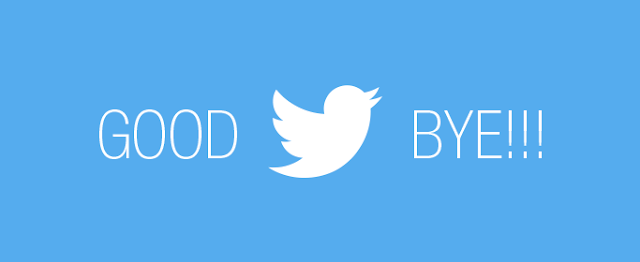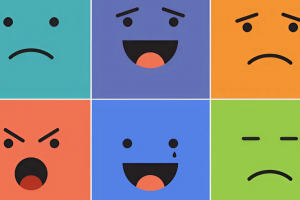Why do the managers and officials of these companies seem to overwhelmingly side with the regime and its policies?
People in high positions at the company who were in charge of Twitter during the covid panic and the early days of the Hunter Biden laptop controversy were there to testify. In particular, they were Yoel Roth, Anika Collier Navaroli, and Vijay Gadde, all of whom had worked there before. All three of them had titles that included words like "trust" and "safety." There was also James Baker, who used to be an attorney for Twitter and an FBI agent. He supported the "Russiagate" theory, which has since been disproven. From what they said, it was clear that all four of them thought they knew the truth and that anyone who didn't agree with them was spreading "misinformation." This "misinformation" usually fit with the political views of these employees, which was convenient.
In reality, though, these keepers of "trust" and "safety" were not fact-checkers, journalists, or any other kind of stewards. They weren't business owners who wanted to make the most money for their owners. They were more like extensions of the US government, the FBI, and the Democratic Party.
This became clear when they said they had banned some articles from their company's platform and "shadow banned" a lot of other stories. They did this either because federal officials told them to or because they did it in a way that helped the regime's preferred positions and policies. Also, it's clear that these Twitter agents were happy to do this. (But the regime's direct pressure would not be something new. The Roosevelt administration put a lot of pressure on the press and Hollywood to support the US joining World War II. This is now well known.)
But even if we believe the Biden administration's weak claims that there is no smoking gun linking the administration to Twitter policies, this only makes Twitter look worse. It would show that this private company is actively and voluntarily using its position in the market to help the regime's efforts to silence dissent.
Corporate America’s Willing Cooperation
Twitter is not the only one that does things like this, though. During the covid panic, social media companies like Alphabet (Google) and Meta (Facebook) regularly banned users and deleted posts that went against the "official" positions on a number of policies. These three companies worked hard to promote the policies and "facts" that the federal Centers for Disease Control and Prevention (CDC) liked. Anything that went against the "official" position was hidden or called "misleading" or "misinformation."So, Twitter's decision to remove the story about Hunter Biden's laptop was exactly what we've come to expect from social media. Instead of letting information get out that corporate leaders didn't agree with, they banned it or made it hard to hear in different ways. This happened while the companies falsely claimed to be neutral "platforms." In reality, these companies are media companies that use user-generated content to push the company's preferred positions. Of course, these positions always lined up with what the FBI and other "intelligence" people, who were hardly a group of unbiased or uninterested people, said was the "right" position.
All of this is a good reminder that private companies often try to serve the regimes they live under, and not just because they are forced to or because regime officials "put pressure" on them. Contrary to the old myth that "big business" is a "persecuted minority," tech companies and corporate America in general have often shown that they are enthusiastic supporters of the technocracy and its efforts to control and plan society.
Technolibertarianism, RIP
Twenty years ago, people who supported free markets often thought that the Internet would make it much harder for governments to control the flow of information and even the flow of goods and services. This idea, which is sometimes called "technolibertarianism," put a lot of hope in the idea that companies like Google and Amazon would make it possible for regular people to publish and distribute ideas and goods that big media companies and other major corporations had no interest in promoting.Back then, Google's motto was "Don't be evil," and many people thought that the people who worked there were somehow the voices of regular people. Today, this sounds crazy and naive, but in the early 2000s, when anyone could start a website and there were a lot of anti-establishment online publications that were different from what could be found in the so-called mainstream economy, a lot of reasonable people really did believe this.
Also, because there was no dominant aggregator of the content made by these sites, online news and commentary took place in a much more equal environment where there was no final word on which websites had the "right" view. If Internet users wanted to get information from sources other than the usual mainstream media, they had to do a lot of the work themselves. The result was a very decentralized internet with a lot of different information sources that all worked about the same.
Social Media Centralized Online Information
Then social media came along. Early on, this was also seen as a new development that would make it easier for anti-establishment and unusual ideas to catch on with a lot of people. In the early days of social media, you could post a photo or article that criticized a story and it could go viral if people found it interesting.Back then, the people in charge of social media had not yet started to try to control and direct content in ways that fit their political views.
But now that it's 2023, things are very different. Companies that make social media have found a way to replace self-selection with controlled "news feeds." This is more "convenient" for casual users, so instead of trusting dozens of independent news sources, readers rely on one or two social media companies to tell them what to read and what to believe.
The new "entrepreneurs" who were supposed to start a new age of technological rebellion against the government turned out to be very different. Today, these Twitter executives are the "elite" of technology. They are strict followers of the rules who work with the government. They want people to think and act like their favorite technocrats, who can be anyone from CDC bureaucrats to mysterious intelligence workers.
Technolibertarianism's hopes turned out to be based on very little. If you look for it, you can find all kinds of information online that shows how the government lies and cheats. But the regime has also found ways to keep people from paying attention to all of this by emphasizing its own points of view and putting down other points of view, which it calls "misinformation." Millions of people who are too lazy to look into anything outside of their Facebook feeds just eat what they are told to eat.
Why They Favor the Regime
But why do most of these companies' managers and officials seem to support the regime and its policies?The fact that these executives and other members of the elite have been taught to have the "right" views is a big part of the answer. In the past few years, it has become even clearer that people with more years of schooling are more likely to vote Democrat. If we assume that voting Democrat means unquestioningly supporting the official government positions on most things—which is not a crazy idea—then we can see the link between formal schooling and support for government mandates, lockdowns, and FBI meddling and spying.
Obviously, this makes sense. The majority of college and university professors in the United States are center-leftists who tend to vote Democratic and like the way Washington works. People who are students in these places for a long time tend to move in the same direction. It wasn't a surprise that the former Twitter executives on the panel for the House Oversight Committee meeting had a lot of graduate degrees between them. Even though some billionaires may not have finished college, most of them hire people with graduate degrees to run their businesses.
One could say that everything is going as planned. Julian Assange wrote in 2013 that the "new digital age" that the heroes of the technolibertarian movement brought about is actually a plan for technocratic imperialism. It was made possible by the US government and Silicon Valley working together more and more.
Last week, when the House Oversight Committee met, this group was front and center. People who watched the testimony could see what the tech leaders really think about freedom and disagreement. It turns out that they don't like freedom of speech. They think that a small group of powerful business people have a moral duty to guide and control public discourse.
The Exploiter Class versus the Productive Class
All of this is a good reminder that the real difference between people is not between the "private sector" and the "government sector." Since the time of mercantilism, at least, the private sector has often been eager to help the government control the public more. The real divide is between those who take advantage of others and those who make things. The productive are the real business owners, net taxpayers, and people who don't get any special treatment from the government. The FBI, the bureaucracy, the people who collect taxes, and the other people who enforce the rules set by the state are all part of the exploiter class. But the class of exploiters also includes "private sector" organizations that try to help exploiters do what they want to do. Obviously, this includes a big chunk of the corporate class of today, especially in Silicon Valley.



























